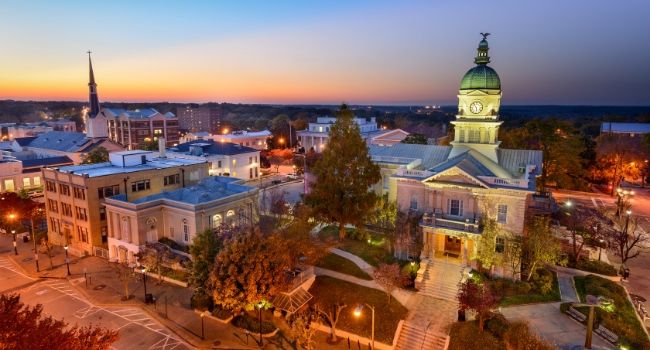
Atlanta University Increases Campus Police Officers' Hours After Shooting
At Clark Atlanta University, staff and students are still on edge after a shooter wounded four students, prompting the university to expand the number of hours its police officers work.
- By Sherelle Black
- August 27, 2019
Following the shooting of four students at Clark Atlanta University, the college is upping the amount of hours its campus police work and increasing its presence to make sure students and staff feel safe.
The increase in hours will allow the police to provide 24-hour coverage on campus. Additionally, the university will be reviewing its safety measures and hosting a forum for freshmen to discuss safety and security issues.
The shooting occurred shortly after 10:30 p.m. Aug. 20 at a block party held to celebrate the end of new student orientation.
The gunshots began after an argument broke out between two parties and someone opened fire, investigators said. Video aired by WXIA-TV shows dozens of students running frantically after the gunshots.
“It appears there were two separate groups that were targeting each other, and these people were just caught in the crossfire,” Atlanta Police Capt. William Ricker told reporters.
The victims were identified as Erin Ennis, 18, of Powder Springs, Georgia; Maia Williams-MClaren, 18, of Boston; Elyse Spencer, 18, of Rochester, New York; and Kia Thomas, 19, whose hometown was not available.
Police are offering a $5,000 reward to catch the male suspect who escaped after the shooting occurred.
Atlanta City Council Member Cleta Winslow said in a news conference Sunday that it is important that the shooter be caught.
"Anybody that would just come up on a school campus and just indiscriminately start firing deserves as much time as the law can give him," Winslow said.
The police have also released surveillance of the male suspect. However, there have been no leads.
About the Author
Sherelle Black is a Content Editor for the Infrastructure Solutions Group at 1105 Media.